I love food. This probably comes as no surprise because why else would I be writing for Spoon? Though while my whole life has revolved around mealtimes, especially dessert, my perception of food has changed dramatically over the past few years.
It started when I bought two Alpine dairy goats at the age of 17. I had always wanted to learn how to hand milk and goats seemed a more feasible investment than cows. My eagerness to learn as much as I could about small scale dairy farming led me to pursue it as my high school senior project. I apprenticed at a goat dairy which specialized in making goat milk caramel, and spent hundreds of hours dedicating myself to properly caring for my animals. At the end of the year I found myself with a total of 5 goats and enough milk to provide for my family as well as a few paying customers. This experience with goats intrigued me to search for other ways in which I could not only become more self-sufficient, but to also use my sufficiency to benefit the environment.

Photo by Nina Listro
During my summer breaks, I found work on organic farms in both Puerto Rico and Colorado, each leaving me with a greater appreciation for the earth and the food that it has provided me. My passion for farming became so strong that I decided to take this past semester off from college to explore it further. For the last 6 months, I have been working as an intern at Maui Bees, an organic and biodynamic farm on Maui. We have three large gardens where the public can come to pick their own vegetables, cows and goats for dairy products, and 170 bee hives around the island.
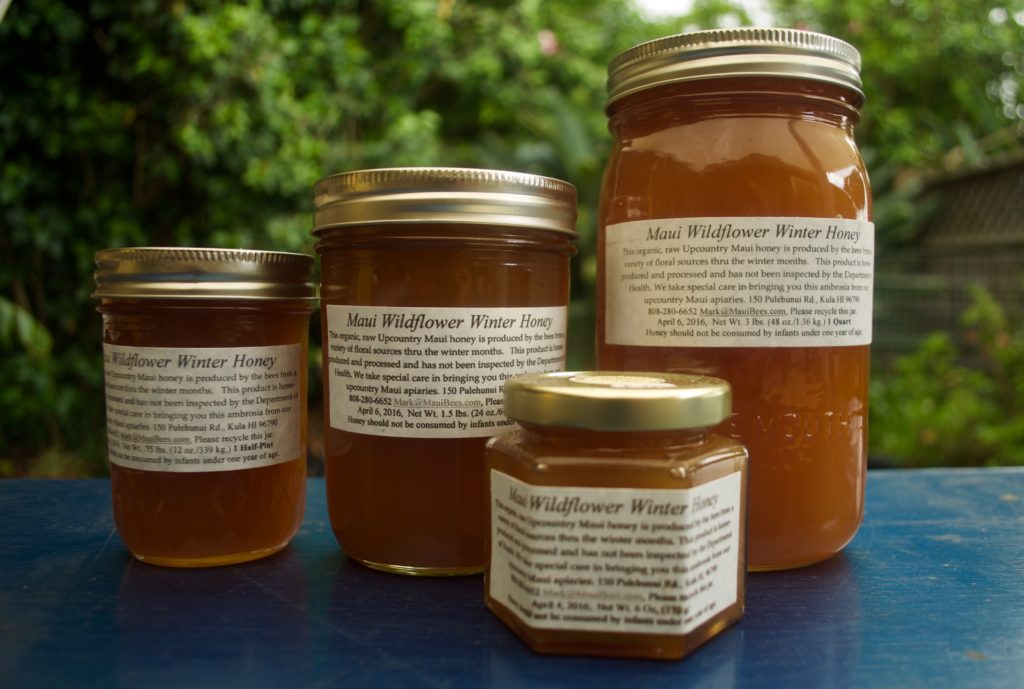
Photo by Nina Listro
Organic farming, which you may have heard about, is defined by the USDA as an agricultural practice which “produces products using methods that preserve the environment and avoid most synthetic materials, such as pesticides and antibiotics”. Lesser known, though becoming quite popular in the wine industry, is the practice of biodynamic farming. Developed in the early 1920s by the philosopher Rudolf Steiner, biodynamic farming goes beyond organic practices in hopes of generating as much health and fertility from within the farm itself. Farmers also strive to work alongside astrological influences to improve plant, animal, and soil vitality.
As my internship comes to an end, I have been reflecting on all I have learned in the past 6 months and how my perception of food has changed since the day I bought my goats at 17. I will be returning home as a vibrant new version of myself, one that finds pleasure in all the hard work it takes to care for such an ecosystem, and with a deeper connection to the beauty of the world around me. I value these lessons so much that I think anyone would benefit from having a similar experience, especially those of our generation who are faced with the daunting task of determining the fate of the environment.

Photo by Nina Listro
There are so many benefits to sustainable farming that I could spend days writing about all of them. But for the purpose of writing an article and not a book, I have chosen just a handful that I believe are the most important and hopefully will help to show just how vital and rewarding farming can be.
The first and probably most obvious skill I have acquired is the ability to grow my own food. I cannot stress enough how important this is when it comes to our freedom and well-being! Everyone knows the saying “you are what you eat,” and there is so much truth to that. Being able to grow your own food provides you with the freedom to know what goes into your body and whether or not it is good for you. When we buy our food from a company we are not familiar with, we are putting our health in foreign hands and these hands may be stained with chemical fertilizers, pesticides, unnecessary additives, artificial colors or sweeteners. The terms we see on the food we buy aren’t necessarily what they seem. “All-natural” could mean chemicals in production and under certification, and organic farmers can occasionally use synthetic pesticides. These terms are ambiguous and it is easy to think you are an informed consumer. However, if we are able to grow our own food, we know exactly what we are eating and we can care for the soil in a way that improves its overall health.
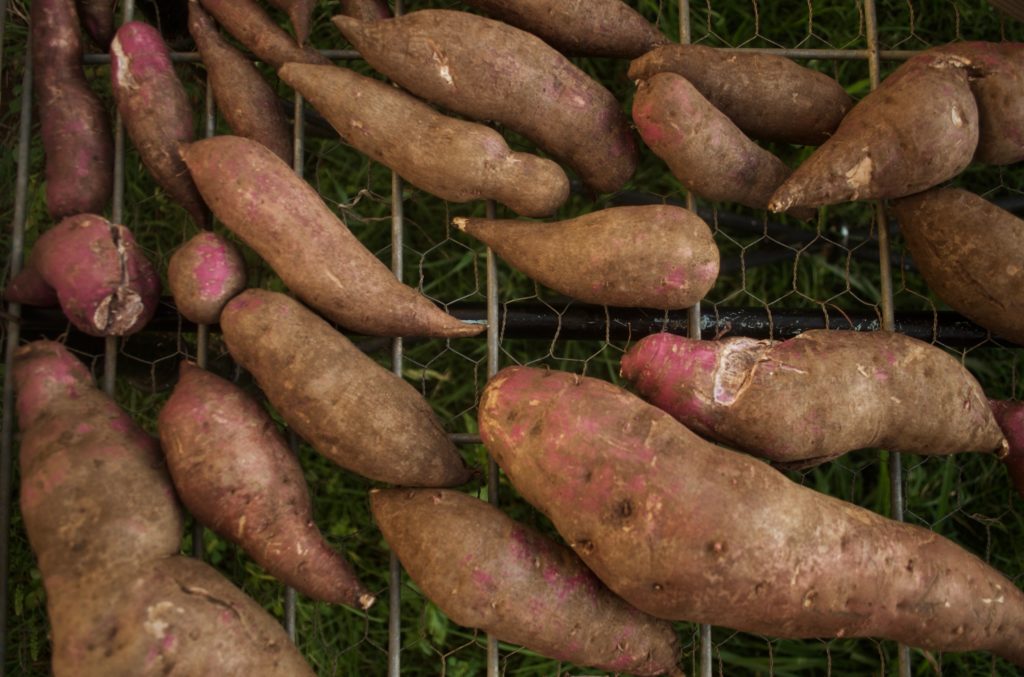
Photo by Nina Listro
In conjunction with being able to grow my food comes the benefit of having the grocery store in my backyard. I rarely find the need to head to town to buy food, except the occasional trip to stock up on staples such as grains, oils, and tea. Instead, I have readily available dairy products from our cows and goats, eggs from the chickens, honey, homemade sauerkraut, avocados, apples, citrus, and vegetables. Other than the initial cost of buying and caring for the animals and plants, I no longer need to spend a hundred dollars a week or more on food.
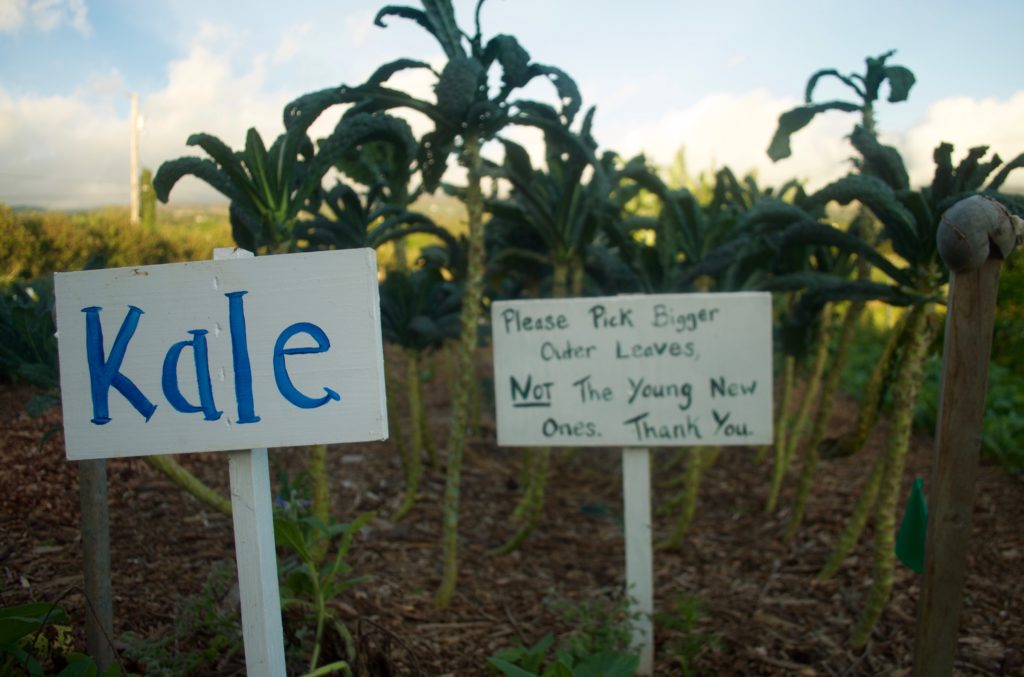
Photo by Nina Listro
In addition, all the hard work I put into growing vegetables or taking care of livestock creates a greater appreciation for what goes into my mouth come mealtime. I no longer take food for granted; I don’t see it as something I am just lucky to have enough of. Instead, I see each plate of food as a collaborative art piece by me and Mother Nature, something worthy of a place at the MoMA. Knowing that I worked my butt off to produce what I’m about to eat not only makes it taste a thousand times better, but it also fills me with confidence to know that I can provide healthy food for myself from my backyard.
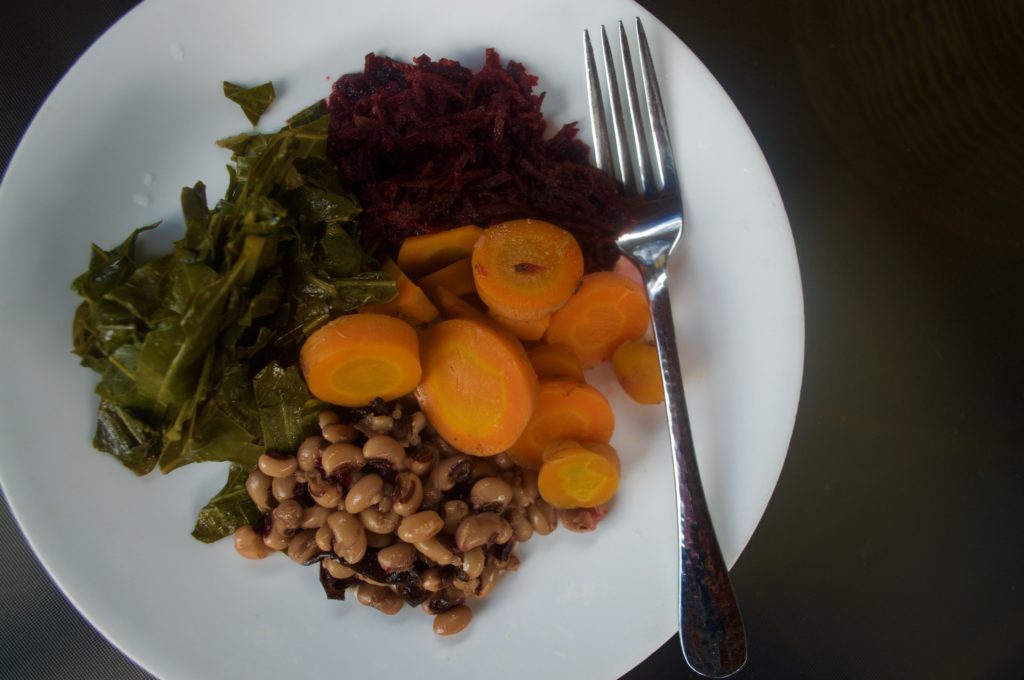
Photo by Nina Listro
I have also come to revere the animals I work with. I think a lot of times we humans feel like we are the dominant ones in our relationships with animals, but I no longer believe that is the case. Even though I have been a vegetarian for many years now, I know that much of my well being is dependent on animals. Having milked 7 goats nearly every day for the past six months, I no longer just see a glass of milk or a piece of cheese. Instead, I think of the animal whose milk produced it and see them as an equal, if not an even higher being than myself. They are my friends, my teachers, and a fundamental part of my well-being.
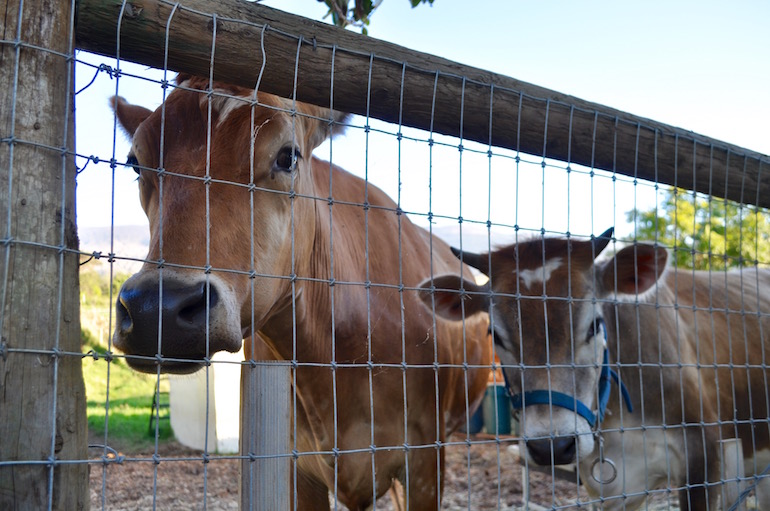
Photo by Nina Listro
Working on a farm is also as much a social activity as it is a daunting task to take on alone. Over the years I have been introduced to a whole new set of friends who also share my passion for food and farming. Not only have my new friends and mentors taught me more than I could fathom about farming, but they have also taught me a lot about cooking. In my experience, some of the best cooks are also farmers and I am constantly stocking my recipe books with their creations. I don’t think I’ve ever eaten as well as I do when I’m working on a farm and I look forward to bringing all the knowledge of cooking I have learned these past six months back to school with me come the fall.
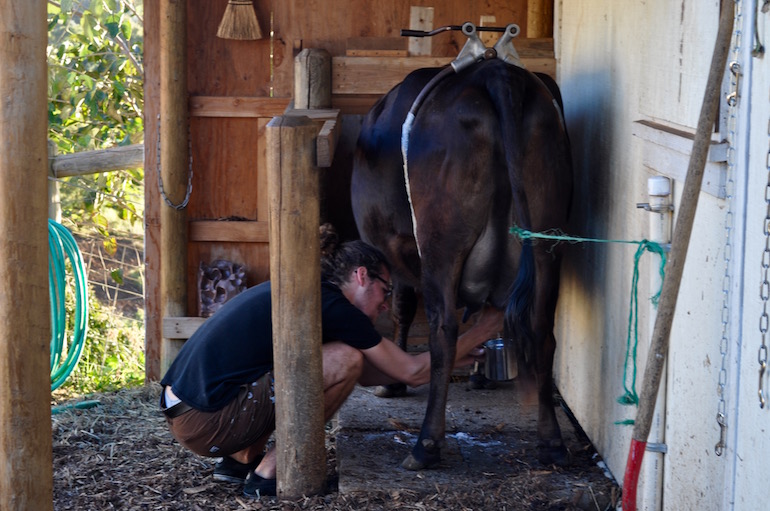
Photo by Nina Listro
Finally, and most importantly, I have come to witness all aspects of life working together harmoniously. Our bees pollinate the plants so they may continue to reproduce, chickens have free range of the orchard and in turn fertilize the trees, all organic waste is composted to provide vital nutrients for crops to come, the list could go on and on. For me, this is the most humbling experience one can have. I recognize that I am only playing a small role in this cycle of life, but that’s okay because I know I am apart of the most beautiful play ever enacted.
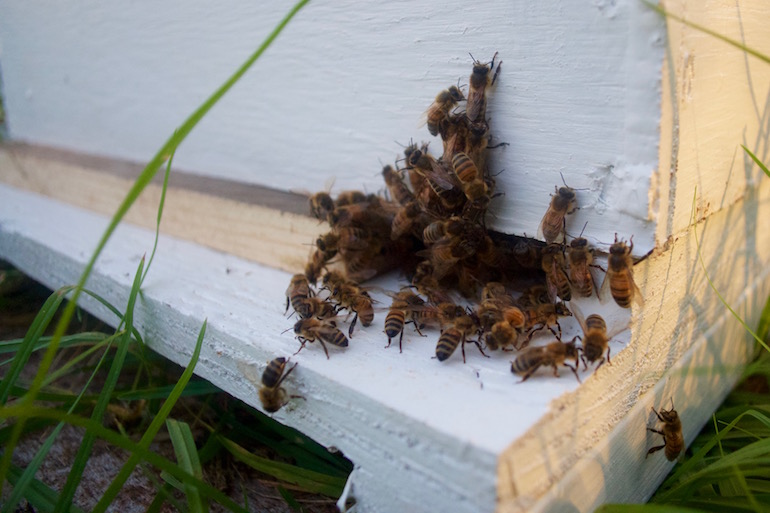
Photo by Nina Listro
Now I know I can’t convince all of my readers to drop what they’re doing and become farmers, though that would be awesome! Instead, my goal in writing this article is to hopefully provide some insight into the benefits of sustainable farming and how it can enhance our relationship with the food we eat. Maybe this article will inspire some to start their own garden, keep a pot of herbs on their kitchen windowsill, or volunteer a few hours of their time at a local farm. Whatever it may be, I can only guarantee that the experiences will be positive, if not life-changing.
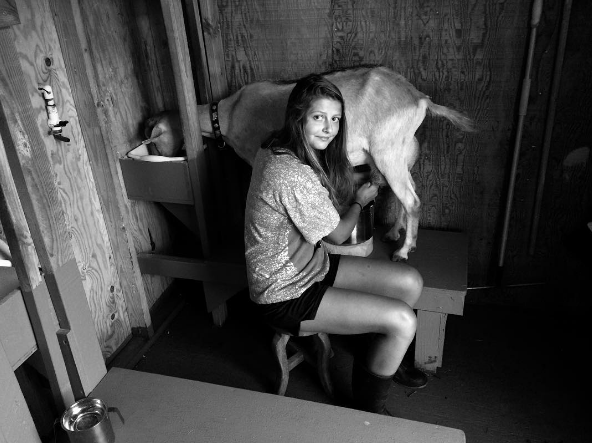
Photo by Nina Listro




